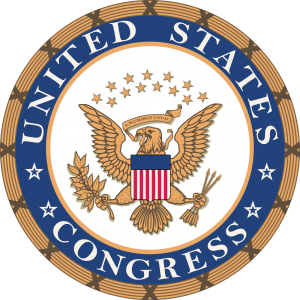So far, there seems to be strong bi-partisan support for broadband in the 115th congress. Several items of legislation from the 114th Congress have stuck around, many breezing through with unanimous votes. Follow this tracking guide to see what kinds of federal legislation is coming down the pipe.
News to Note
Upcoming NTIA Reauthorization Hearing
The House Subcommittee on Communications and Technology will hold a hearing February 2, 2017. The hearing will be chaired by Rep. Blackburn and is titled “Reauthorization of NTIA.” The hearing is being held to discuss updating the NTIA Organization Act for modern times. The NTIA has not be reauthorized since 1992.
Senate Democrats Release Broadband Friendly Infrastrucutre Plan
On January 24, 2017, Senate Democrats revealed their infrastructure plan. The $1 trillion proposal titled, “A Blueprint to Rebuild America’s Infrastructure,” includes broadband among other infrastructure needs. Democrats project this plan could create 15 million jobs over 10 years.
Active Legislation
- HR 290 – FCC Process Reform Act (Passed House 1/23/2017); Reforms the Commission’s processes to create more efficient and transparent action.
- HR 460 – Improving Rural Call Quality and Reliability Act (Passed House 1/23/2017); Requires intermediate providers to register with FCC and comply with service quality standards. Aimed at improving call quality from long distances or wireless calls in rural areas.
- HR 588 – Securing Access to Networks in Disaster Act (Passed House 1/23/2017); Creates requirements for mobile providers to make sure consumers have access to networks during disasters. Require study to examine resiliency of networks during these events.
- HR 599 – FCC Consolidated Reporting Act (Passed House 1/23/2017); Consolidates eight FCC reports into one communications marketplace report. Reduces reporting burdens and encourages better market competition analysis.
- HR 423 – Anti-Spoofing Act (Passed House 1/23/2017); Protects consumers against deceptive text messages. Updates the Truth in Caller ID Act.
- S 19 – MOBILE NOW Act (Favorable committee recommendation 1/24/2017); Requires 500 MHz of spectrum be made available for wireless broadband by 2020 and promotes 5G development. Speeds permitting and establishes dig-once policies for federal agencies.
- S 88 – Developing and Growing the Internet of Things Act (Favorable committee recommendation 1/24/2017); The DIGIT Act engages governmental agencies and private sector in discussion to grow the Internet of Things without regulatory silos.
- S 96 – Improving Rural Call Quality and Reliability Act (Favorable committee recommendation 1/24/2017); Requires intermediate providers to register with FCC and comply with service quality standards. Aimed at improving call quality from long distances or wireless calls in rural areas.
- S 102 – Securing Access to Networks in Disaster Act (Favorable committee recommendation 1/24/2017); Creates requirements for mobile providers to make sure consumers have access to networks during disasters. Require study to examine resiliency of networks during these events.
- S 134 – Spoofing Prevention Act (Favorable committee recommendation 1/24/2017); Protects consumers against deceptive text messages. Updates the Truth in Caller ID Act.
- S 174 – FCC Consolidated Reporting Act (Favorable committee recommendation 1/24/2017); Limits the reporting obligations of the FCC to improve congressional oversight.
